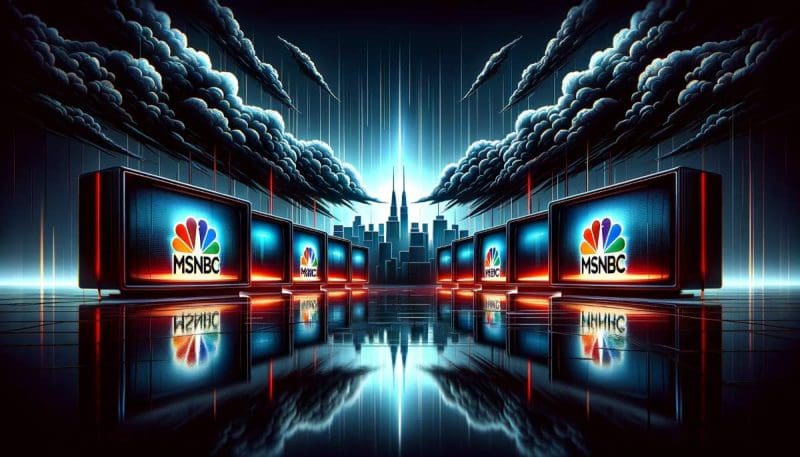
In a move that has tongues wagging and keyboards clacking at a frenetic pace, NBC’s recent hiring of Ronna McDaniel, former Chair of the Republican National Committee (RNC), has sent shockwaves through its corridors and beyond.
This decision, bold and brash as it is, has stirred a pot of controversy, sparking debates on the dynamics of media impartiality, the blending of politics and journalism, and the workplace culture within NBC itself.
Who is Ronna McDaniel?
Before we dive into the meat of the matter, let’s frame our protagonist. Ronna McDaniel, a figure known for her robust leadership of the RNC, has been a polarizing figure. Her tenure at the RNC was marked by staunch support for the Republican agenda and an unwavering commitment to party politics including supporting the election lies and Trump’s attempt to steal the election. McDaniel’s move to a significant role within NBC, a media giant perceived by many as leaning more towards the liberal end of the spectrum, has raised eyebrows and questions alike. Chuck Todd, Joe Scarborough, Nicole Wallace, Joy Reid, and other hosts have raised concerns on the air and in private.
The Backlash: A Multi-Faceted Drama
The backlash from NBC staff is not just a simple grievance; it’s a multi-layered drama that touches on several sensitive chords:
- Media Bias and Integrity: At the heart of the controversy is the question of media impartiality. How does the hiring of a high-profile political figure affect the perceived neutrality of a news organization? Staff and critics alike worry that this move might tilt the scales of balanced reporting, compromising the network’s integrity.
- Workplace Culture and Morale: There’s an undeniable tension simmering within NBC. Staff members have expressed concerns that McDaniel’s hiring could signify a shift in editorial direction, potentially marginalizing voices within the organization that advocate for journalistic independence and diversity of thought.
- Public Perception: In the age of instant feedback and social media scrutiny, the public’s perception of NBC is at stake. The network risks alienating segments of its audience who view this decision as a betrayal of journalistic principles.
The NBC Defense: A Strategy or a Gamble?
NBC’s decision to bring McDaniel on board can be seen as a strategic move to diversify its political coverage and appeal to a broader audience base. In defense of their choice, the network might argue the importance of presenting a wide array of viewpoints, thereby enriching the public discourse. However, this rationale walks a tightrope between strategic diversity and potential compromise on journalistic ethics.
The Broader Implications
The implications of McDaniel’s hiring extend beyond the immediate uproar at NBC. They touch on broader themes relevant to our current media landscape:
- The Blurring Lines Between Politics and Journalism: This incident highlights the increasingly porous boundaries between political advocacy and news reporting. Where should the line be drawn to maintain trust and credibility in journalism?
- Corporate Influence on Media: The controversy also sheds light on the power dynamics within major media organizations and the influence of corporate and political interests on editorial decisions.
- The Role of Media in Democracy: Ultimately, the situation prompts a reflection on the role of the media in a democratic society. How can media outlets balance commercial interests, political representation, and the imperative of unbiased reporting?
Looking Forward
The dust has yet to settle on NBC’s decision to hire Ronna McDaniel, and the long-term repercussions remain to be seen. Will this move prove to be a strategic masterstroke or a misstep that erodes trust in one of America’s media pillars? One thing is clear: the conversation around media impartiality, journalistic integrity, and the interplay between politics and reporting is far from over. As we continue to navigate these turbulent waters, the need for critical engagement and dialogue around these issues has never been more crucial.
The unfolding drama at NBC serves as a compelling case study in the complexities of modern media, the challenges of maintaining journalistic integrity in an era of political polarization, and the ongoing quest for a balanced and informed public discourse.
